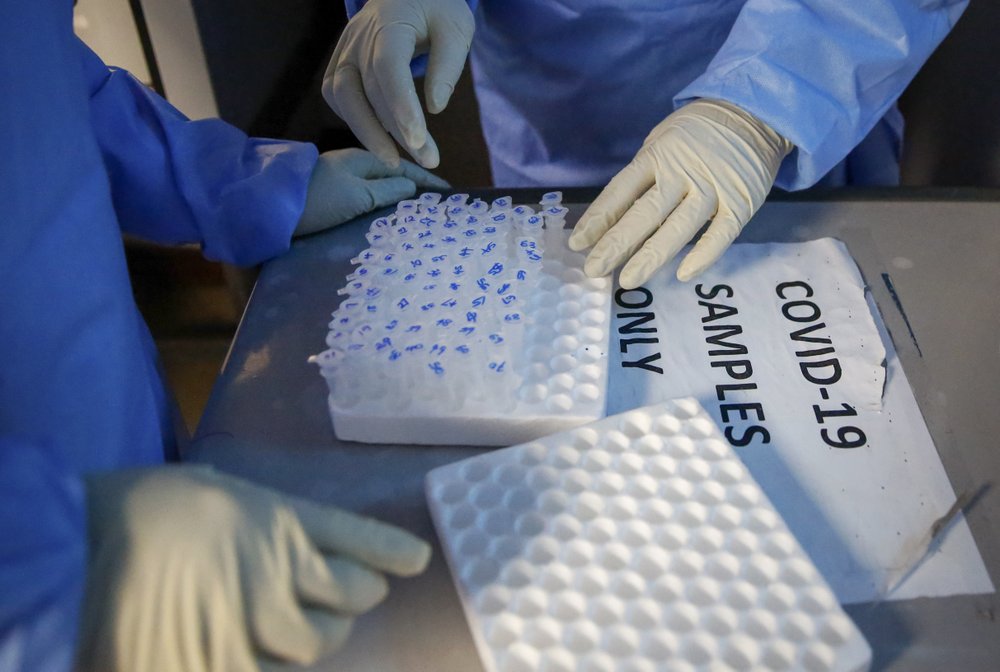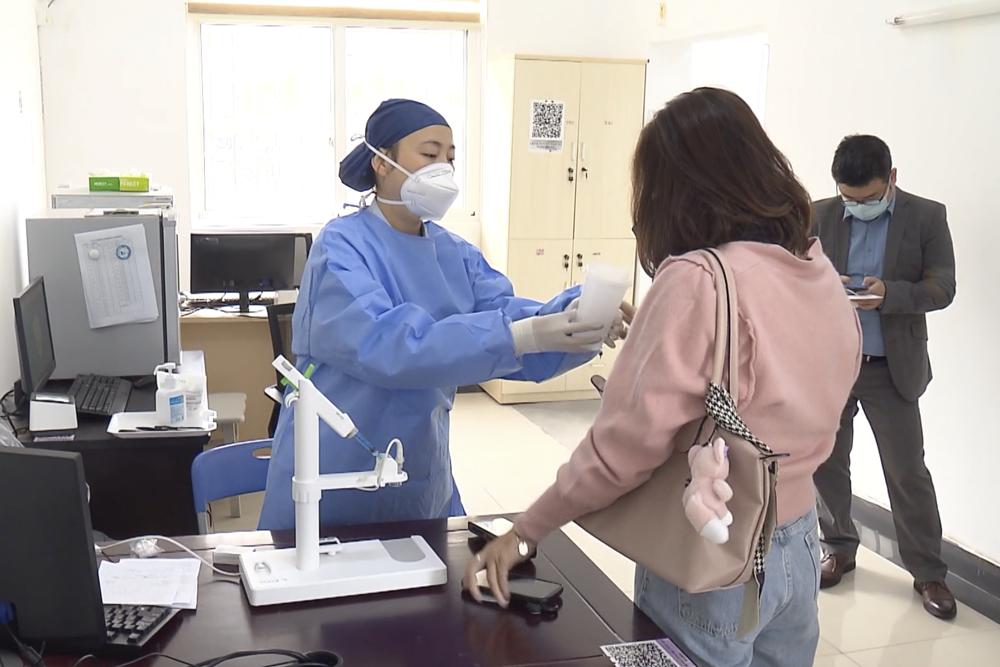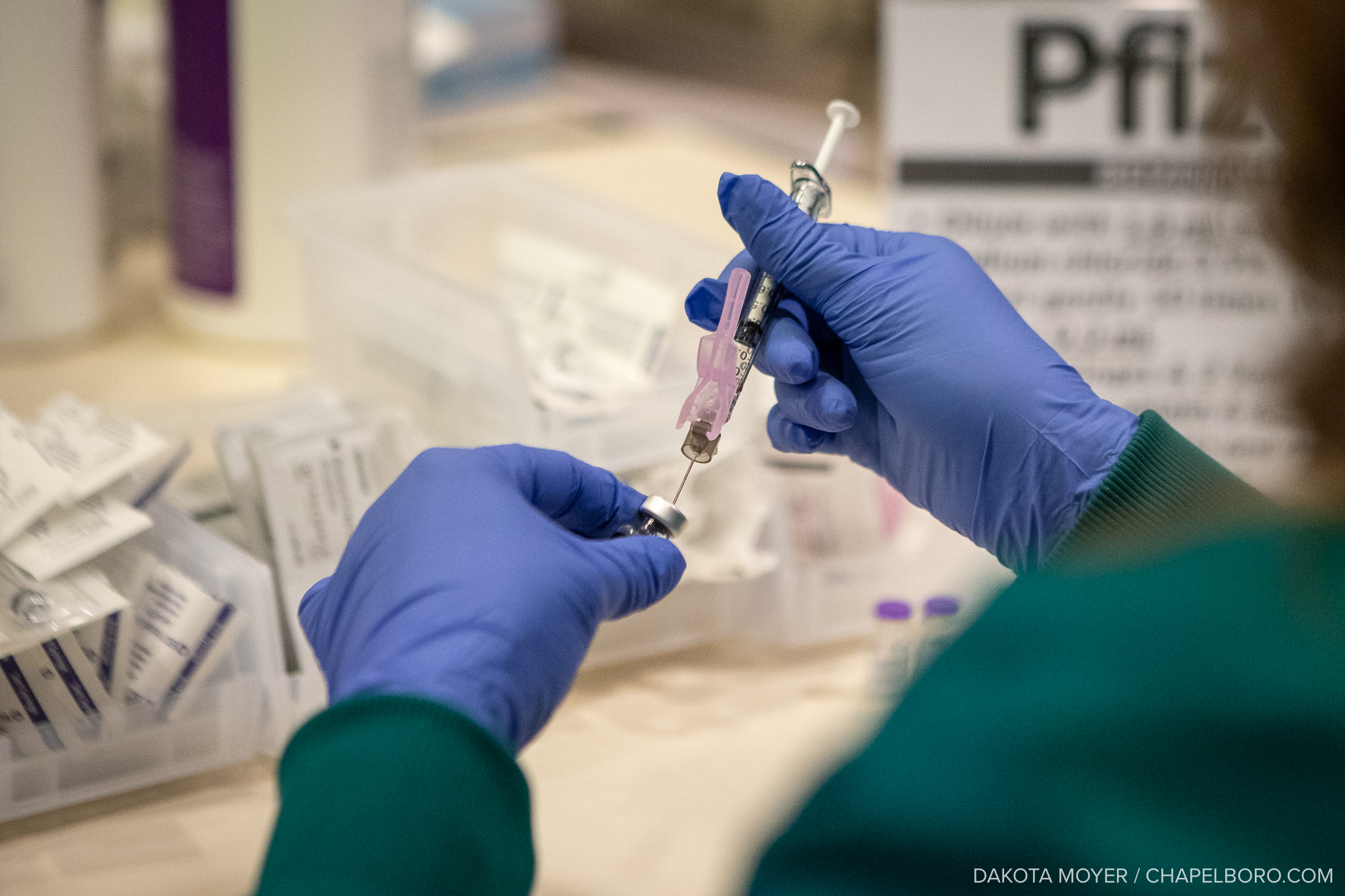A recent report detailed how foreign surveillance teams and hackers are attempting to steal COVID-19 vaccine research, including from UNC.
The New York Times published an article Saturday saying the Federal Bureau of Investigation has warned the Chapel Hill university in recent weeks about hacking attempts. According to the piece, Chinese hacking teams made moves to break into the computer networks of UNC’s epidemiology department, which is the center of much advanced research on the coronavirus.
The report said while the hackers did not infiltrate the university’s computer system, it is not the lone attempt foreign entities have made to access research being done in the United States. After speaking with current and former intelligence officials, the Times reported the federal government has warned several universities and pharmaceutical companies about attacks, as well as helped review their cybersecurity.
Surveillance shows the hacking groups have largely targeted common vulnerabilities often not patched instead of using intricate techniques, said the article. It shares a quote from Bryan Ware, the assistant director of cybersecurity for the Homeland Security Department, who indicates those cyberattack efforts will likely become stronger.
“It is really a race against time for good guys to find the vulnerabilities and get them patched, get those patches deployed before the adversary finds them and exploits them,” said Ware. “The race is tighter than ever.”
According to the Times, some government officials also believe Chinese surveillance teams are working to take advantage of research partnerships their own universities or companies have with American schools. UNC has its own history of partnering with China for research, including one current effort that studies HIV and sexually-transmitted infections.
As of Monday, no corporation or university has announced any data thefts resulting from hacking efforts publicly identified by the U.S. government.
When reached for comment by Chapelboro, UNC Assistant Vice Chancellor and Chief Information Security Officer Dennis Schmidt said the university regularly receives threat alerts from U.S. security agencies, like many research institutions.
“We take information security seriously and are continually enhancing our safeguards according to industry standards and best practices,” wrote Schmidt. “As part of our commitment to protecting intellectual assets, Carolina has invested in around-the-clock monitoring and threat-hunting services to help guard against advanced persistent threat attacks from state-sponsored organizations. We also have adjusted our posture not just to keep up with best practices of higher education, but to look ahead of them.”
In April, UNC was ranked the highest among United States universities for COVID-19 research by Microsoft Academic.
Chapelboro.com does not charge subscription fees. You can support local journalism and our mission to serve the community. Contribute today – every single dollar matters.
Related Stories
‹
![]()
Companies Test Antibody Drugs to Treat, Prevent COVID-19With a coronavirus vaccine still months off, companies are rushing to test what may be the next best thing: drugs that deliver antibodies to fight the virus right away, without having to train the immune system to make them. Antibodies are proteins the body makes when an infection occurs; they attach to a virus and […]

COVID-19 Vaccines and Treatment Progressing, But Long Way from Widely AvailableMany of us are well-aware of the everyday tactics of battling the coronavirus: wearing masks, washing our hands and staying six feet apart from others. But what are the recent developments in the medical world in terms of treatment or prevention? Health experts and economists report the United States may not return to life before […]

Why TikTok’s Security Risks Keep Raising FearsWritten by KELVIN CHAN and HALELUYA HADERO The battle between the U.S. and China over TikTok comes into full view on Thursday when the social media platform’s CEO testifies before Congressional lawmakers. Shou Zi Chew’s hearing is happening at what he’s called a “pivotal moment” for the hugely popular short video sharing app. TikTok is […]

China’s Xi Faces Threat From Public Anger Over ‘Zero Covid’Written by DAKE KANG Barely a month after granting himself new powers as China’s potential leader for life, Xi Jinping is facing a wave of public anger of the kind not seen for decades, sparked by his “zero COVID” strategy that will soon enter its fourth year. Demonstrators poured into the streets over the weekend […]

Afraid of Needles? China Rolling Out Oral COVID-19 VaccineWritten by KEN MORITSUGU The Chinese city of Shanghai started administering an inhalable COVID-19 vaccine on Wednesday in what appears to be a world first. The vaccine, a mist that is sucked in through the mouth, is being offered for free as a booster dose for previously vaccinated people, according to an announcement on an […]

Local COVID-19 Pioneers Honored with Statewide AwardsKizzmekia Corbett and Ralph Baric were among nine recent recipients of the North Carolina Award, the state's highest civilian honor.

UNC to Automatically Register Employees for the COVID-19 VaccineWith the news that all frontline essential workers are eligible for the COVID-19 vaccine beginning on Wednesday, March 3, UNC is communicating plans on how it will affect university employees. Group 3 includes “college and university instructors and support staff” as well as other front-line essential workers and researchers, as defined by the North Carolina Department of Health […]
![]()
‘Overwhelm the Problem’: Inside Biden’s War on COVID-19The meetings begin each day not long after dawn. Dozens of aides report in, coffee in hand, joining by Zoom from agency headquarters, their homes or even adjacent offices. The sessions start with the latest sobering statistics meant to focus the work and offer a reminder of what’s at stake: new coronavirus cases, people in […]
![]()
Indonesia Starts Mass COVID Vaccinations Over Vast TerritoryIndonesian President Joko Widodo received the first shot of a Chinese-made coronavirus vaccine Wednesday after the government authorized it for emergency use and began efforts to vaccinate millions of people across the vast archipelago in one of the world’s most populous countries. Indonesia’s vaccination program is the first large-scale use outside of China of the […]
![]()
China Clamps Down in Hidden Hunt for Coronavirus OriginsDeep in the lush mountain valleys of southern China lies the entrance to a mine shaft that once harbored bats with the closest known relative of the COVID-19 virus. The area is of intense scientific interest because it may hold clues to the origins of the coronavirus that has killed more than 1.7 million people […]
›








